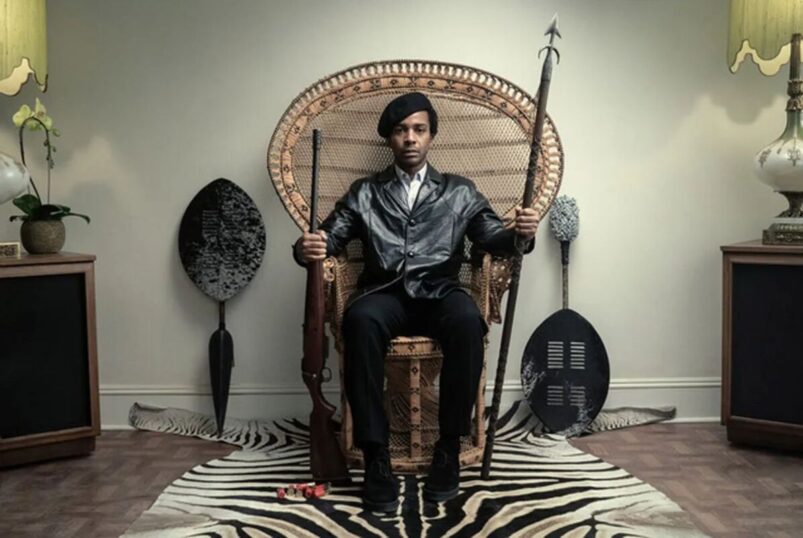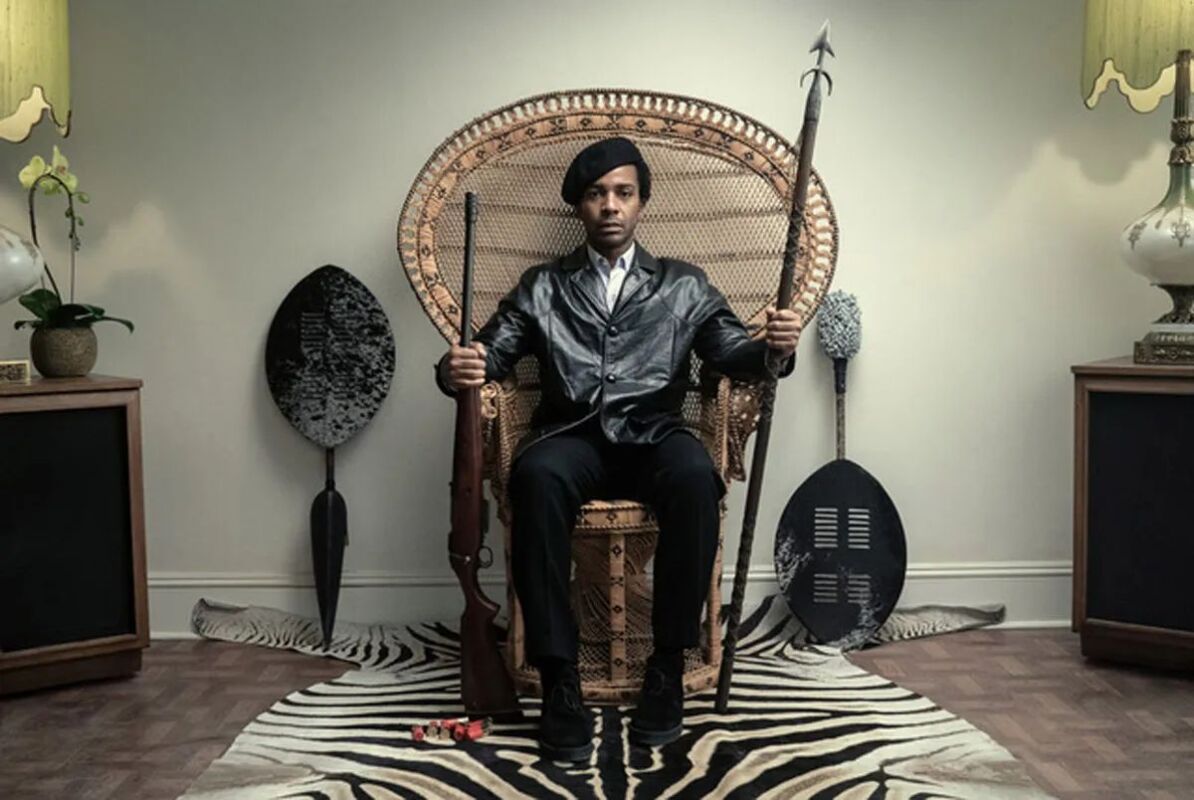“The revolution will put you in the driver’s seat”
– ‘The Revolution Will Not Be Televised’, Gil-Scott Heron
How best to depict the life and times of Huey P. Newton, the charismatic leader of the Black Panther Party? According to The Big Cigar, it’s by reducing him to an ancillary character within his own story, a man with seemingly no free will who exists to be acted upon by others.
Feminist media criticism advances the idea of the ‘sexy lamp test’: if you can replace your female character with a sexy lamp and the story still works, well, to what extent can you really call them a character? Newton doesn’t quite float my boat, but for huge stretches of The Big Cigar he might as well be the stolen diamonds, or any other MacGuffin of your choice, an object to be smuggled off to safety.
As a result, Andre Holland gives us his best Newton in twitchy scenes of paranoia, crazed at the looming spectre of the other shoe that’s about to drop – and this is, of course, somebody else’s shoe, rather than anything that risks him being subject rather than object. There’s only so much of a performance you can give when your role is to be carted about from scene to scene like luggage.
Having already relegated the man who is clearly meant to be the protagonist to an ‘and also with’, The Big Cigar then bungles this further by providing him a love interest who somehow has even less agency than he does. By comparison with this unfortunate role, the rest of the speaking female cast – to a woman, horrible shrews who are only there to complain – seem rounded and fleshed out. Anything’s a step up from the sexy lamp.
I am always hesitant to invoke politics in a review, but for a work that is so clearly grasping for progressive brownie points (fight the power, man!), this casually dismissive attitude towards every woman and black person present is baffling. Why even make a show about Huey P. Newton if you’re this uninterested in him? To be sure, it gives the potted history, but seems to almost resent having to do so, devoting as much time to dreary scenes of film producers arguing over money.
The creators are clearly a lot more eager to make a heist-style thriller (the source material is by the guy who came up with Argo), and so that’s where their instincts take them. The issue is that there’s little actual heist material to work with. Newton spends much of The Big Cigar’s runtime hiding out in a Beverley Hills mansion, with little opportunity to go anywhere near sources of actual tension. So when one comes along, they need to make the most of it, and these are spread to the point of being very thin indeed.
And when it comes to gunfights, The Big Cigar has the perennial problem of action scenes, that the events are slashed and butchered by so many cuts it’s hard to know what’s going on. The frequent flashbacks tend towards similar issues, they can further illuminate what’s happening in the present, more often they go flashing back because they’ve a lot of material from the past and need to put it somewhere.
(When did standard chronology go out of fashion? Answers on a postcard, please.)
If The Big Cigar is trying for a warts-and-all portrayal of Newton, and the Black Panther Party as a whole, it’s a swing and a miss. Newton’s well-documented issues with cocaine are alluded to, but it somehow never comes to the fore in the way a serious, deleterious coke habit would (some of the props in his apartment made me wonder if there’s a lot of deleted scenes on the subject). Hilariously, it’s only Alessandro Nivola’s character we see racking them up onscreen, rather than this squaring the circle and answering the obvious question of why Newton and these Hollywood bigwigs get on so well.
As for the Panthers, The Big Cigar takes the lamentable tack of judging them by intentions rather than outcome. Raising party funds by shaking down drug dealers is depicted as an issue because it brings them into conflict with the mob – rather than, for instance, because it represents the Panthers degenerating into a mob themselves. And this is skated over like some amusing side detail, as is Panther minister of information Eldridge Cleaver leading a fifteen-year-old boy on a ‘suicide mission’.
The central tension of whether Newton committed the murder of which he’s accused is dismissed by Newton himself as ‘some bullshit’, and the show agrees, finally noting that Newton was never found guilty. This is true, but carries with it the enormous asterisk that the prosecution’s main witness retracted her testimony after three Panthers made an attempt on her life.
(This was a farcical episode in which the Panther hit squad attacked the wrong house and were sent running by the armed homeowner, which would have fit wonderfully with the taut tone The Big Cigar thinks it’s striking.)
The Big Cigar tries to hark at some sort of commentary on the relationship between Newton’s grassroots organisation and the distorting power of the mass media, but in and of itself doesn’t take that much further than the fact it’s all happening in Tinseltown. There’s some token gestures towards it, the famous photo of Newton with rifle and spear, Newton being inspired by the blaxploitation classic Shaft, but the show is content merely to present these ideas rather than explore them in any way.
Even within the 1970s, you had figures like Tom Wolfe satirising ‘radical chic’, the way these insanely rich Hollywood power-players would try to manufacture an iota of street cred by prominently hanging around with the Black Panthers. Certainly, this is what Nivola and P.J. Byrne’s characters are up to, but it’s hard to escape the idea that’s what The Big Cigar itself is doing, too – presenting this theme-park version of Newton’s life and times, with a mock-humility that never extends to getting the hell out of shot and actually showing an interest in its ostensible subject.
READ MORE: 20 Best PS2 RPGs Of All Time
Some of the coverage you find on Cultured Vultures contains affiliate links, which provide us with small commissions based on purchases made from visiting our site.


